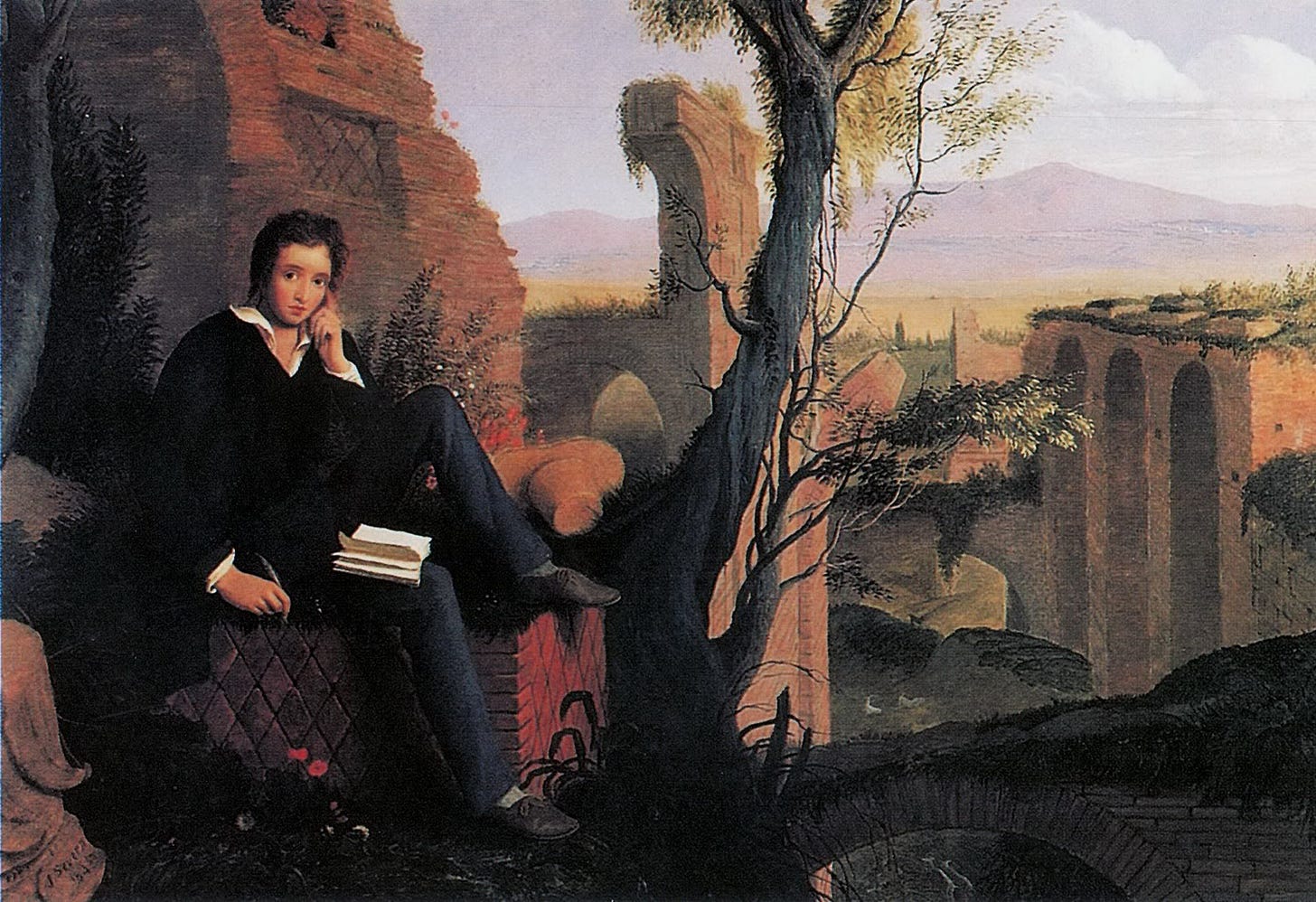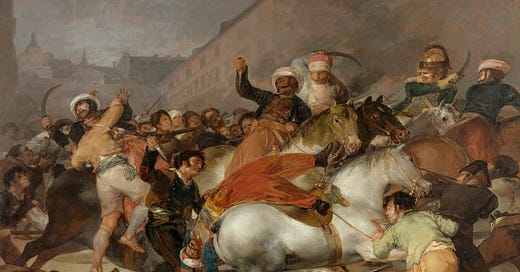“The echoes of liberty had awakened once more in Spain, and the morning of human hope dawned again.”
William Hazlitt wrote those words in 1826. When, 160 years later, I found myself burning in the June sun in the Plaza de Toros in Tenerife in 1986, as I felt the pressure on either side of my body from the crush of the many thousands of people packing that arena, I probably wasn’t thinking of Hazlitt’s fine phrases.
But I didn’t need them. This was a different century but the same kind of dawn. In the 1980s, Spain, having been ruled by the dictator Franco from 1939 until his death in 1975, was once again enjoying a fresh morning of freedom.
I was living in Tenerife in those days, 1 and I’d gone along to the Plaza to listen to Felipe González, the presidente del Gobierno or prime minister, as the post is generally known in English.
González wasn’t the person who’d pried open the doors of liberty or even formed the first democratically elected post-war government in Spain.2
But he was the man who, first elected in 1982 with a very significant majority, had a mandate to “modernise” Spain, a country that had been very much on the margins of the post-war reconstruction and development in Europe.
The country had just joined the EEC, which would become the EU, at the start of 1986. And González was fresh from a narrow victory in the referendum about joining NATO, which he’d supported. It was a controversial policy, and I recall seeing the graffiti “No a la OTAN” (“No to NATO”) sprayed on many white walls in the city, Santa Cruz de Tenerife.
I confess I have no recollection of what González said that day. What remains with me, though, is the sense of excitement palpable in the arena. González was already a veteran politician. He’d been active in politics under the former regime, which outlawed such activity, and had been arrested at one point. Now the prime minister and seeking a second term, he was a fine and relaxed orator who seemed to know how to speak to his public.
But, looking back, I realise that it wasn’t just González who was speaking that day. It was freedom; it was democracy; it was the belief in a better future. This morning of human hope shone in that plaza like a deliverance.3
*
Bliss was it in that dawn to be alive,
But to be young was very heaven!—Oh! times,
In which the meagre, stale, forbidding ways
Of custom, law, and statute, took at once
The attraction of a country in romance!
William Wordsworth wrote those celebrated lines about his experience of the early days of the French Revolution in 1809, well after the French Republic (1792–1804) had given way to the Napoleonic Empire and his own revolutionary ardour had subsided. I hadn’t recalled Hazlitt’s line, but I remembered Wordsworth’s poem that day in 1986. And if those lines ever meant anything to me, they meant it then, in the heady intoxication of Spain’s first decade of democracy since Franco.
I’d come from the UK’s more mature democracy, which seemed to me to have its own “meagre, stale, forbidding ways/Of custom, law, and statute.” And of course, I couldn’t really imagine what it had been like for the Spanish to recover their voice in public affairs over those last ten years, but I could feel freedom settling in the dusty arena while González spoke and the crowd cheered. Back home in England, freedom was (I thought) mostly a concept for lawyers and politicians to discuss. Here, it was a physical sensation.
*

But, looking back, I realise that it wasn’t just González who was speaking that day. It was freedom; it was democracy; it was the belief in a better future. This morning of human hope shone in that plaza like a deliverance.
Keep reading with a 7-day free trial
Subscribe to English Republic of Letters to keep reading this post and get 7 days of free access to the full post archives.





